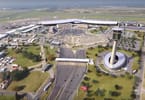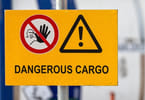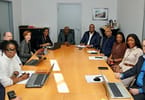Last week saw the partnership between the Rwanda Development Board (RDB) – Tourism & Conservation and the African Park Network (APN) being consummated when the partnership was launched at the park headquarters. The two partners formed a joint holding, the Akagera National Park Foundation, which will be chaired by a nominee from RDB while APN is due to second the CEO to the organization.
The groundbreaking agreement came about when Dubai World, which was initially designated to enter into a similar agreement, had to pull out from several projects planned in Rwanda, leaving the Rwanda Development Board with the option to seek new and arguably more reliable partners. The African Park Network is already engaged in managing national parks and game reserves and no stranger to the challenges which need to be met, while RDB can now devote extra attention and capacity to other national parks like Nyungwe, for which infrastructural investments by RDB are underway and which is receiving a high level of exposure in overseas markets for its bird watching and primate tracking activities.
Said Mrs. Rosette Rugamba at the handover ceremony: “[We must] restore, develop, and manage Akagera as one of the finest and most productive protected areas in central-eastern Africa. It [the partnership] must deliver and demonstrate bio-diversity rehabilitation and conservation and sustainable natural resource utilization for the benefit of the economy and the people of Rwanda and in particular to the neighboring communities.”
Officials also refuted allegations that the park has been sold or leased to investors, as the cooperation is restricted to management and related issues, including infrastructural improvements and capital expenditure, while the ownership of the park remains with the government of Rwanda.
The following key issues were highlighted to this correspondent as the immediate challenges ahead:
– Habitat management and monitoring, especially on fires, wetlands, water points, and alien species
– Wildlife restocking, focusing on the black rhino, the lion, and the roan antelope
– Construction of an electric fence on the western boundary, with appropriate maintenance systems
– Strengthening law enforcement and anti-poaching, with aerial surveillance equipment and intensive training/coaching
– Community mobilization through education programs and local enterprise development
– Financial viability, through sustainable tourism development, targeting a three-tier system (nationals, foreign residents, and non-residents)
– Management infrastructure and equipment
– Best Management Practices – manual of operations, staff training and development, andn transboundary program for the Akagera Basin
The immediate capital requirement to achieve the short- and medium-term objectives has been confirmed by a source in Kigali to be in the region of about US$10+ of which APN is due to advance over US$5 million to kickstart work. The Rwandan government is due to participate in equal terms.
The Africa Park Network, launched in 2000, is a nonprofit company incorporated in South Africa and has registered offices in Johannesburg and the Netherlands. African Park Network has already entered into similar partnership agreements with the governments of Zambia and Malawi, among others, and is currently managing a total of 2.5 million hectares of protected areas throughout Africa.
In added information received from the Rwanda Development Board – Tourism & Conservation, the history of the Akagera National Park was explained and the details provided, courtesy of RDB, are reflected below.
ANP is one of the oldest national parks in Africa having been gazetted in 1934. It now covers just over 1000km2, having lost about two-thirds of its area over the years. This reduction has had very negative effects on the biodiversity and ecological integrity of its natural ecosystems. Despite its small size, it remains an exceptional conservation area with a rich diversity of wildlife normally associated with savannah ecosystems. It contains the largest protected wetland in Central Africa, which provide habitat to one of the richest avian diversities with 535 bird species.
Akagera National Park is known for its immense potential for both conservation and tourism development. Currently, the park is the second frequently-visited park. In 2009, 15,244 park activities were registered. Tourism revenues recorded in 2009 were estimated at 156M Rwanda Francs. There is no doubt that Akagera’s potential will be developed to the fullest for the benefit of all Rwandese, including the local communities living around the park.
Rwanda’s conservation has come a long way over the past 15 years – in 1994, Rwanda had two national parks that were on the verge of total destruction from a combination of settlement, encroachment, and poaching. Since then, we have not only gazetted a third national park – Nyungwe, but also strengthened their protection and management. Their ecological integrity is largely restored, and their contribution to national and community development has grown immensely.
Since 2005 to date, 31 community projects worth 251,556,854 M Rwanda Francs have been funded in communities adjacent to Akagera National Park under the Revenue Sharing Policy of allocating 5 percent of park revenues generated to development of projects. Water tanks, schools, curio shops, cultural centers, tile factories, and income-generating projects such as milk cooling plants and bee keeping, among others, have been set up.
As a means of mitigating poaching and the recurring human-wildlife conflicts, the tourism office set up measures to contain the wildlife within the park boundaries such as:
– 3.5 km stone wall
– 15 km trench in Ndego
– one valley dam to prevent wildlife from going out of the park in search for water
– an electric fence will be erected around the park
– ex-poachers associations have been set up to participate in joint patrols with park rangers
The formulation of the Wildlife Policy is in its final phases and will chart new pathways for addressing conservation challenges through multi-stakeholder participation, which will enable consolidation of past gains and establish very firm foundations for conservation in the country.
WHAT TO TAKE AWAY FROM THIS ARTICLE:
- The African Park Network is already engaged in managing national parks and game reserves and no stranger to the challenges which need to be met, while RDB can now devote extra attention and capacity to other national parks like Nyungwe, for which infrastructural investments by RDB are underway and which is receiving a high level of exposure in overseas markets for its bird watching and primate tracking activities.
- The immediate capital requirement to achieve the short- and medium-term objectives has been confirmed by a source in Kigali to be in the region of about US$10+ of which APN is due to advance over US$5 million to kickstart work.
- Officials also refuted allegations that the park has been sold or leased to investors, as the cooperation is restricted to management and related issues, including infrastructural improvements and capital expenditure, while the ownership of the park remains with the government of Rwanda.






















